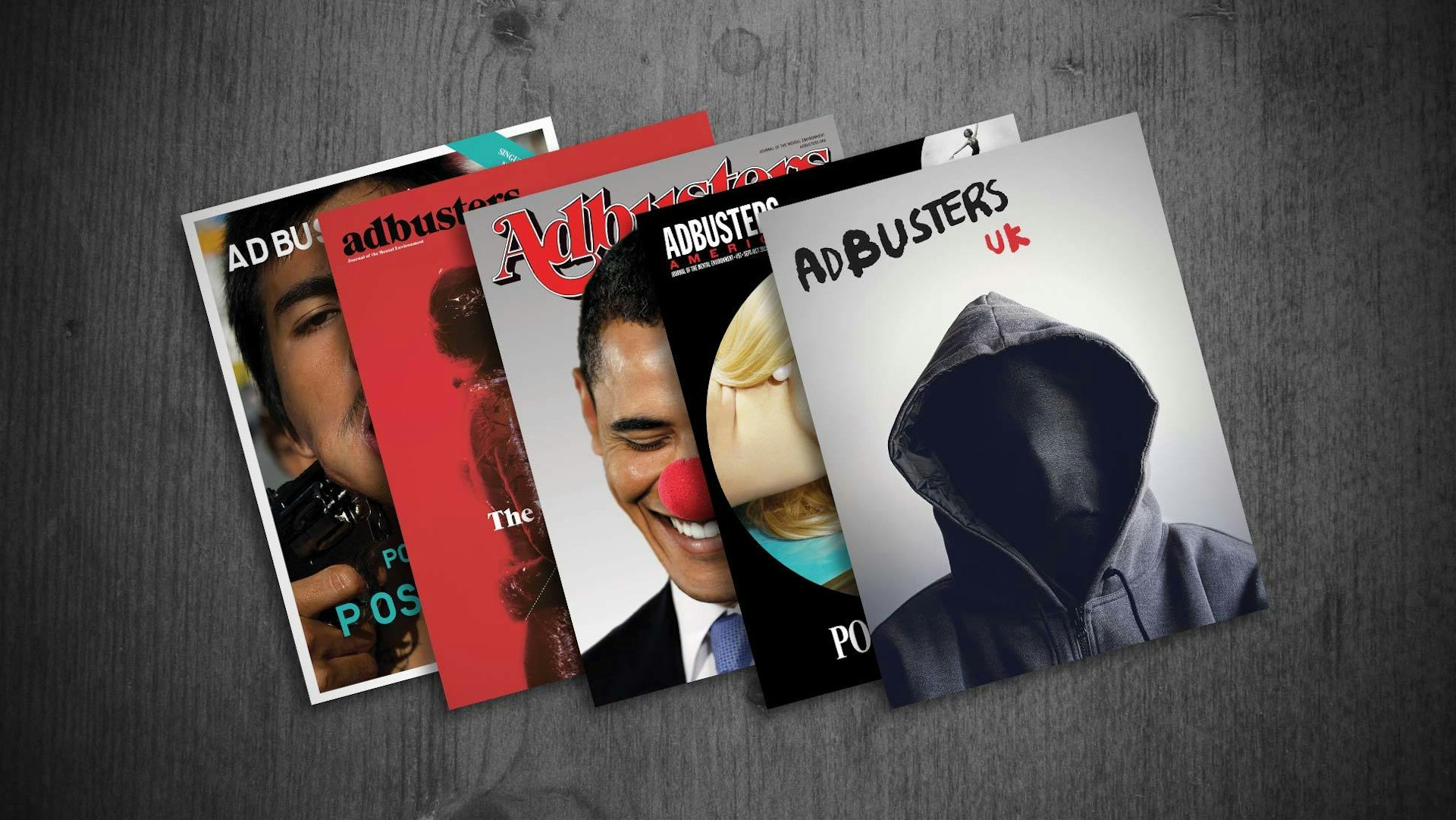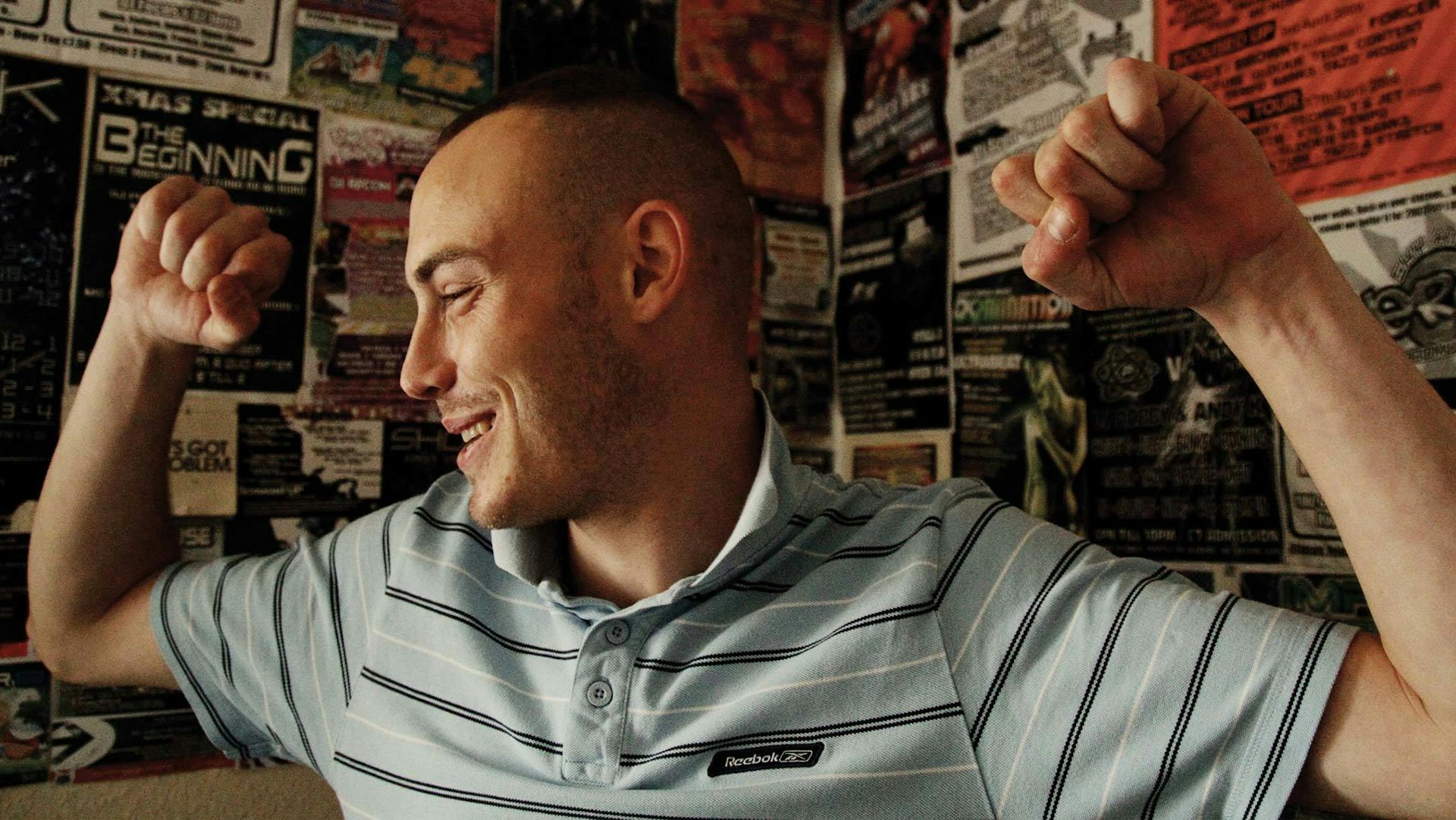
Adbusters
- Text by Vince Medeiros
Most magazines are full of ads, right? A commercial assault on your senses as you flick through page after page of sexy this and oh-my-god that before you get to what’s probably a piece of PR-led editorial, let’s be honest. Not Adbusters.
Kalle Lasn, the sixty-nine-year-old pioneer behind the iconic anti-establishment magazine, has made it his business to challenge advertising for twenty-odd years now. With thousands of loyal subscribers and an online network of over 100,000 followers, the magazine is one big resounding fuck-you to corporate advertising and consumer culture.
And in 2012, as the economy crumbles all around us, he remains one optimistic dude, seeing a new future in print and hailing the Occupy movement (which he had a hand in creating) as the catalyst to a new era.
Almost every media outlet out there relies on ads for revenue, and you guys have managed without it. That’s incredible.
Yes. Right from the start we called ourselves Adbusters and went head on against the whole fucking industry.
And how’s it going with the mag?
Things are pretty good. After Occupy, we’ve had a hell of a resurgence. Now we’re excited about [developing] a new magazine aesthetic that can somehow come to grips with the internet crisis that all print magazines are in. […] We’re totally dedicated to staying hard copy and pioneering this new aesthetic.
Tells us about how you guys use the internet.
The internet is really good for doing what we did with Occupy. We sort of riled the world up in some way and catalysed something and then put out various tactical briefings that kept the whole thing going. The internet is great for campaigning, for the action side of things. But when it comes to looking at the philosophical roots of revolutions or talking about aesthetics and the backbone of activism, then it’s hard to beat a hard-copy magazine that feels good in your hand. This is a complementary model that people like us can pioneer.
It also allows you to make a more collaborative kind of journalism, as opposed to a mag made by a bunch of editors and journalists in an office. Do you agree?
The internet has allowed us to have a global creative model. Our creative director is in São Paulo, Brazil. One of our editors is in Berkeley, California, and I’m fifty kilometres outside Vancouver in touch with our team all over the world. [We now] play a global game creatively. And that sort of creativity is hard to beat. […] We have this culture jammers network, and almost 100,000 people have signed up. We’re in constant communication with those people – we send them stuff and they send us stuff. We let them know what the next issue will be about, and people send ideas for what the next issue could be about, and if they shoot some wonderful magical photo on their iPhone then they’ll send it to us. The internet is feeding into our system in a pretty profound way. Learning how to harness these kinds of possibilities is what the future is all about.
Is there a post-advertising publishing model on the horizon?
When I was a young man the model of a magazine had something to do with advertising but it was fairly marginal. It was all about having constituency, a bunch of people who loved what you did and felt they were part of a tribe surrounding what you were doing. That was such a beautiful, down-to-earth model that somehow got subverted by advertising. Now a design student or someone like you – you don’t even think about not using advertising. You start calling up advertisers and putting ads in your magazines even before you get your writers together.
Insane, huh?
Advertising has occupied our minds. There are now roughly between 2,000 and 5,000 marketing messages a day seeping into the average brain of anybody who lives in the UK or Canada, the US or Japan. That’s a huge onslaught of marketing messages coming into your brain whether you like it or not. A lot of people who feel stressed or anxious, they don’t quite know why it’s happening to them – and of course it could be happening for all kinds of reasons – but one of those reasons is this incessant onslaught of advertising that not only attacks your mind and puts a lot of noise into your system, but it also tells you lies; it tells you that you can be happy if you buy this or buy that – it’s an emotional mindfuck. […] But the world is going back. The [future will be in magazines] that are driven by the sheer joy of communicating deeply with the largest number of people.
So producing less toxic media is a part of that process as well.
Yes. Part of the reason why the Occupy movement started is because there was a feeling that I think was shared by young people all around the world that the future does not compute. The future is all about ecological crisis, financial crisis, political crisis, and they will never be able to have a life that’s anywhere like the one their parents had. Unless they stand up and fight for a different kind of future, then they’re not going to have a future. This is what binds all young people of the world together. That’s gonna manifest itself in all kinds of ways. One of the ways is as a major backlash against corporate advertising and corporate PR, especially in the United States of America, where corporations right now are deciding who’s going to be the next president of the United States. We’re going to start occupying the media power centres to make sure they’re working for us and not for the corporations.
That’s exciting – do they know you’re coming?
We’re at a strange moment right now where nobody quite knows what will happen. We had a big blast last year when it was suddenly cool to be a leftie again. I think the biggest thing the Occupy movement did is rejuvenate the political left worldwide. Because the political left has a history of fizzling out. Back in 1968, we fizzled out. The Battle of Seattle, we had a moment in the sun there and then we fizzled out. […] But I feel that this time it’s different – we’re actually going to start picking up momentum and changing every institution in our lives.
There’s a sense of urgency right now, right?
Yes and it’s personal. Revolutions don’t happen until things get really personal. […] [And now] we have the tools, we have the social media, the internet, and we are able to mobilise ourselves really quickly and create a flash mob somewhere if we want to. The internet has given us a new model of activism which I think is the best model we’ve ever had. There’s a lot of potential that we haven’t even started to realise yet.
And what role do designers play in this upcoming revolution?
I’ve been saying it for years: designers have been corporate ass kissers. Of all the professions I can think of, designers have ingrained themselves [the most] into the needs of corporations and given them beautiful door handles for cars and wonderful thirty-second TV spots and full-page ads, etc. The design community has a lot to answer for. But then again, lately, there’s been a lot of out-of-the-box thinking, and a lot of young designers don’t wanna spend the rest of their lives kissing corporate ass. I have a feeling they are waking up to the fact they are very powerful people. […] They realise they are the people who create the style of culture, the tone of the media, the ambience of the spaces in which we live and in this sense one could argue that they are some of the most powerful people in the world.
Lastly, what do you think of magazines such as ours, with an activist edge but also commercial in nature?
We live in a world where ninety per cent of the people are living a lie. They’re in denial; they don’t want to think about climate change, or political corruption. They’re caught in their own bubble, especially in the so-called rich West. So, magazines like yours can do wonderful things in helping wake up that ninety per cent. We’ve done a lot of stuff in Adbusters about the audience you speak to. These are people with an edge in their lives. Adbusters talk a lot to the converted, but you have a whole bunch of interesting unconverted people so fuck it, convert them. And once the buck starts flowing really good, turn on your advertisers!
